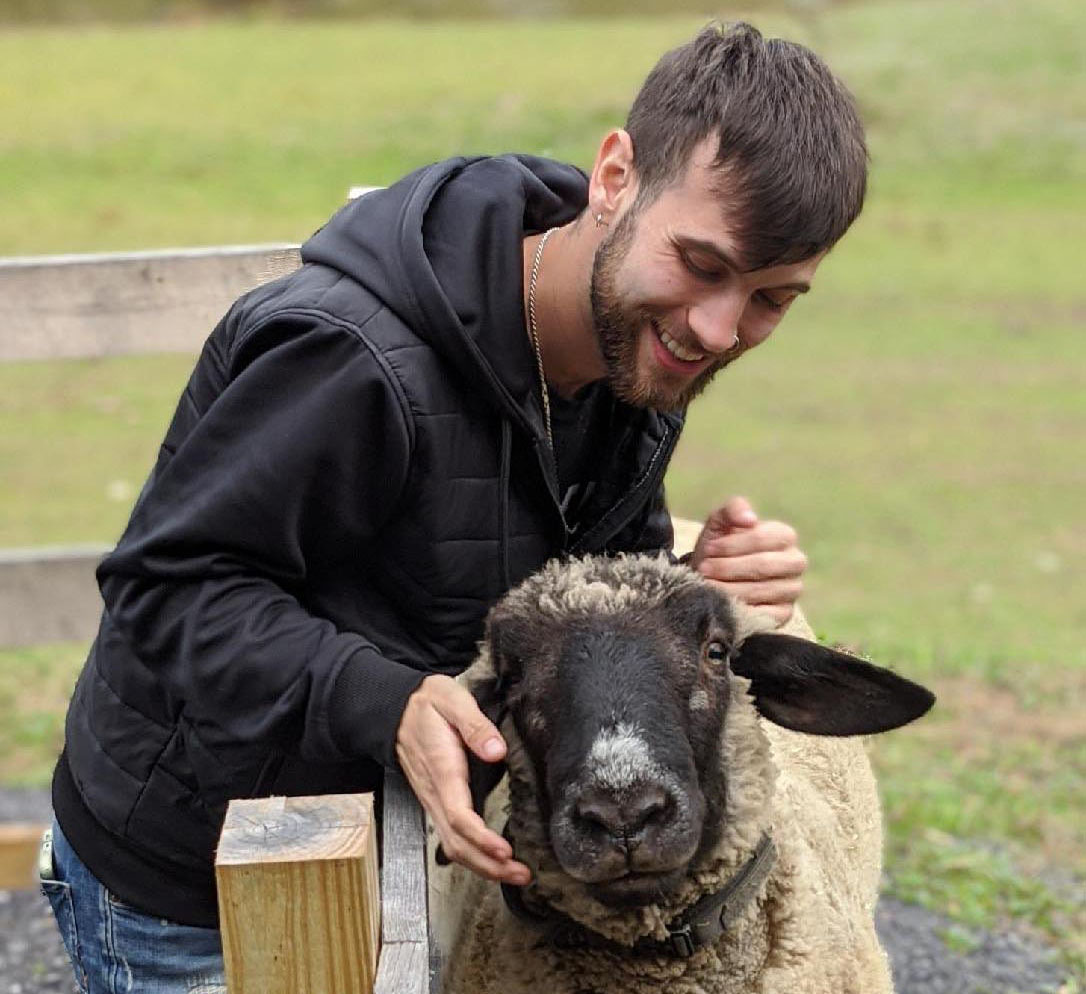I recently had the opportunity to sit down with Jared Krimsky, a sheep care specialist who has worked at both Catskill Animal Sanctuary in New York and Jameson Humane in California. I can’t stop thinking about what he shared about his experiences with rescued sheep. We often think of sheep as simple, passive creatures, but Jared’s stories paint a very different picture – one of intelligent, emotional individuals with rich social lives. As Denver voters consider a ban on slaughterhouses, directly affecting one of the largest lamb processing facilities in the nation, Jared’s insights shed light on why this initiative is so important.
Q: What drew you to work with rescued sheep?
A: “I fell in love with sheep after starting animal care work and seeing their personalities. I cared for a sheep named Naomi who needed a lot of physical therapy and treatments. Despite the painful treatments, Naomi was very forgiving. That’s when I realized there was so much more to sheep than people typically see.”
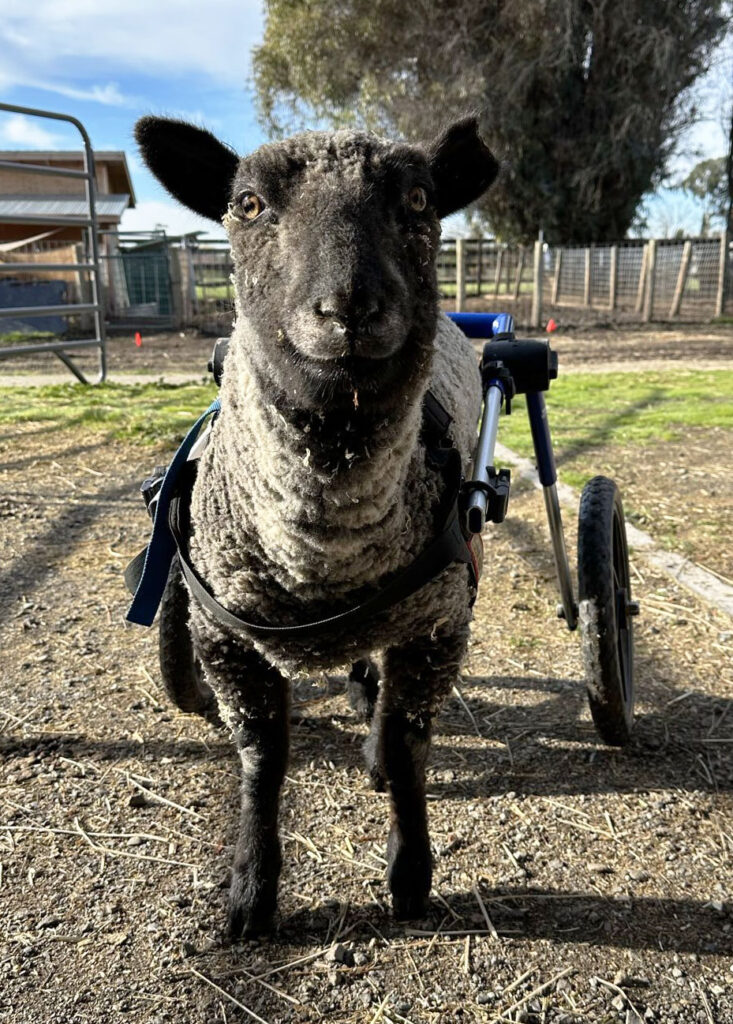
Q: Is there a particular sheep’s story that stands out to you?
A: “Abram was rescued from a ritual sacrifice situation… he was the last one alive. When Abram got to Catskill, he was a very defensive lamb. It took a really long time for him to trust us, but I instantly fell in love with him. Even after seeing the darkest part of humanity, he was able to learn in just a few short months that not all people were like that. Now, the only time he accidentally hurts somebody is when he gets over-excited about the prospect of getting pet.”
Q: How do sheep show their emotional intelligence?
A: “We had a lot of animals at Catskill, so a lot of deaths. So a lot of crying would happen, right? There was a time I was crying, and Abram knew something was wrong. This giant sheep walked up to me, started pawing me, and trying to get in my lap… They definitely feel emotion. It surprised me how much he wanted to comfort me and make me feel better.”
Q: What have you witnessed about sheep intelligence that might surprise people?
A: “Sheep are way smarter than people give them credit for. I saw Abram figure out the mechanics of opening a gate with his mouth after seeing humans do it so many times, trying to go get pets from the people on the other side of the gate. Another time, one of our employees walked across a frozen lake, and I saw Abram standing and staring, bewildered. That night, he walked across the lake and raided our food cart!”
Q: Tell me about how they relate to their families.
A: “Judith, as we named her, had escaped a backyard butcher with her daughter… She went through hell, hadn’t eaten in a long time, and was wandering in a forest with bears and coyotes. She was fleeing something she knew was not safe for her baby. She’s a mother, and that is what anyone would do. It was such a maternal instinct and such a smart thing for her to do, because we were able to save all of her friends and family.”
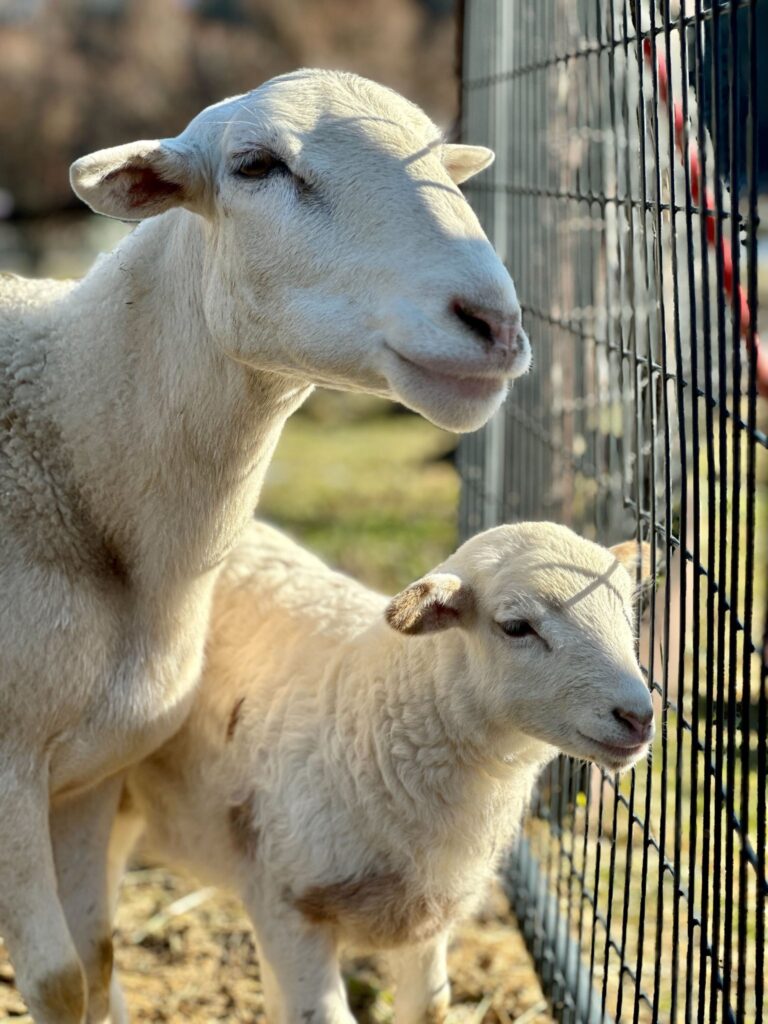
Q: Can you talk about how they relate as a herd?
A: “When you think of a herd animal, you think of sheep. There’s a reason for that… Having a sheep alone is neglect in itself. I believe it’s abusive to have them alone. It’s so sad to hear a lone sheep just calling out to any person, it’s the most sorrowful sound I’ve ever heard – they’re just wanting a friend. There was also this sheep, I think she was named Lena. She was motherly with all of the sheep, and all the younger sheep would look up to her kind of like a matriarch. The other sheep couldn’t really defend themselves very well from another sheep, Davy, so when he would try to establish his dominance, Lena would come in and headbutt him, like, ‘Hey, you’re not behaving correctly.’ It was very sweet to see that maternal instinct.”
Q: Can you speak to the cruelty of the sheep industry?
A: “I often think about the sheep moms… Having a baby, bonding with them for five months, and then having them stolen, and having that happen 3 to 6 times in her life before she’s slaughtered. That’s so much trauma for an animal whose familial bonds and herd mentality are so important.”
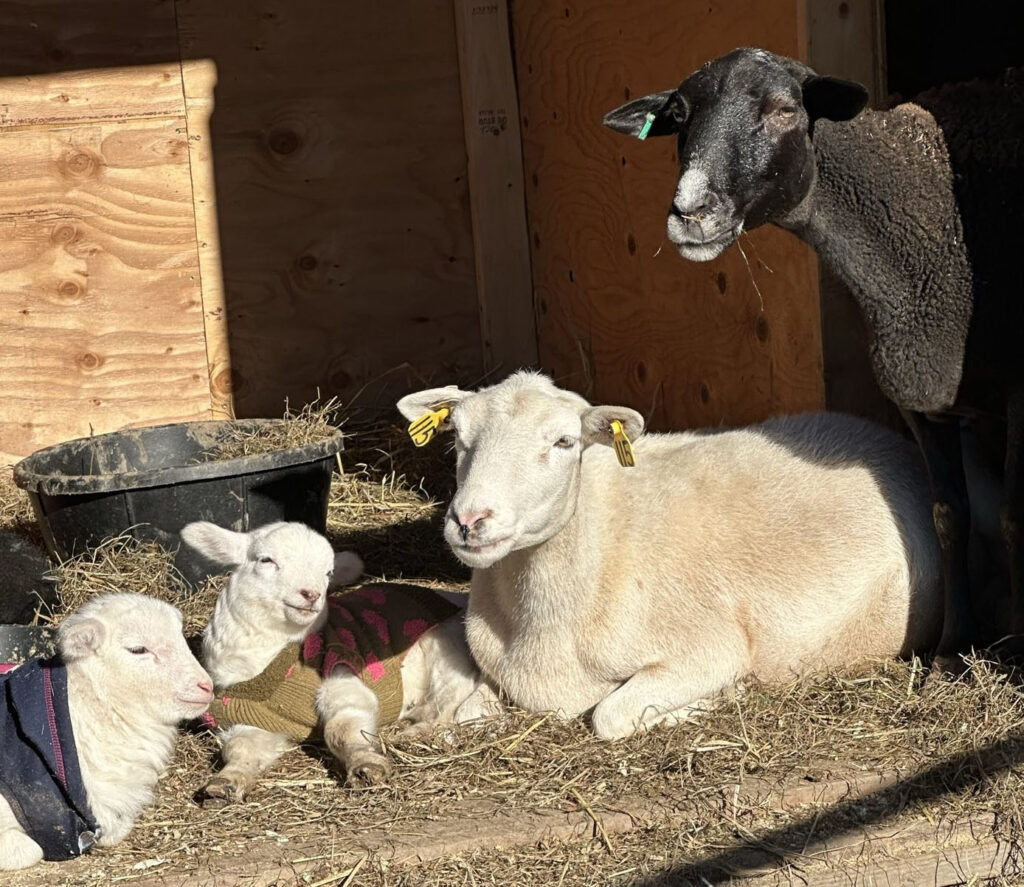
Q: What’s the most rewarding part of your work with rescued sheep?
A: “My absolute favorite part is the transformation– helping traumatized animals who had been conditioned not to trust humans, watching them grow over months and years to learn that people want to love them. That is an absolutely amazing thing. When Abram came, in the first six months he was very traumatized – the look in his eyes was so dark and sad. And then, within a couple of months of being in a safe place and learning about people, his eyes were so happy and beautiful and full of life. It was absolutely amazing. I’ve seen a lot of sheep who have forgiven humanity, even after a lifetime, sometimes 10 years, of abuse and neglect. I can’t imagine how they could ever forgive us for what we did.”
Q: What do you wish more people understood about sheep?
A: “I struggle with how often people use ‘sheep’ as a derogatory term, like it means overly trusting or easily led. But that’s so backwards, because it’s not easy to earn a sheep’s trust or affection at all. They’re standoffish, you have to be so gentle and earnest to get them to like you. If you betray that trust, you’re the bad guy, not them. At sanctuaries, sheep can live 10-13 years. The oldest sheep ever recorded was 23. We had one sheep, Briggs, who passed away recently at age 20. He was rescued at age 10 from a hunting farm, so he got to have a whole second life at the sanctuary.”
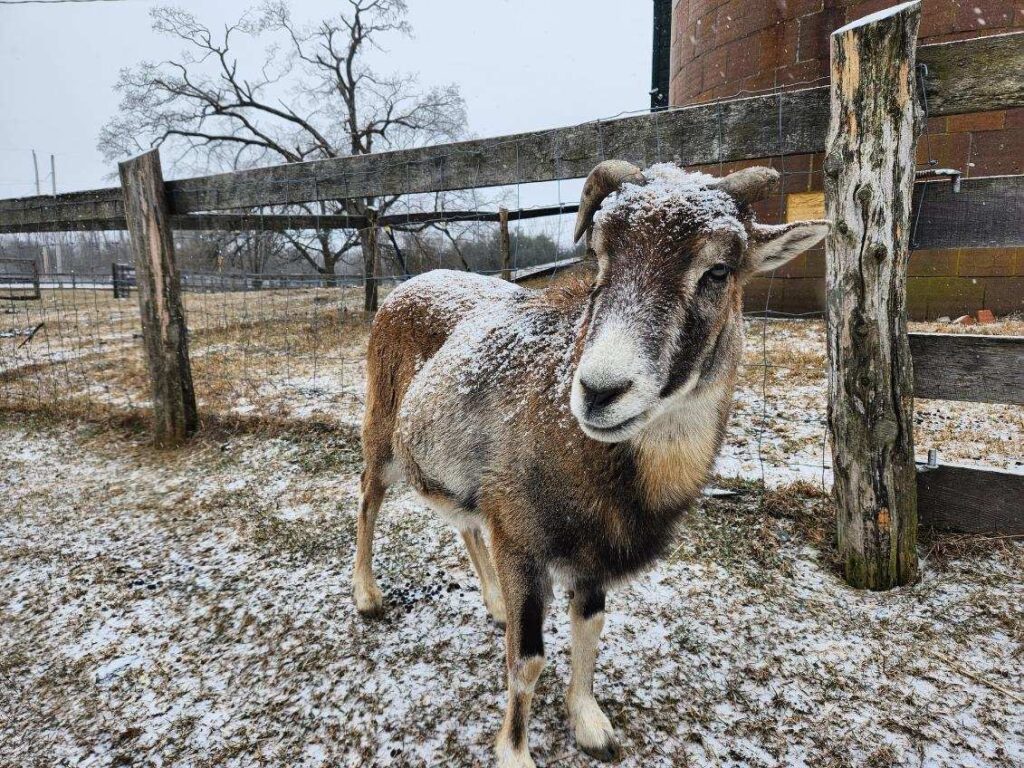
The Undeniable Truth: Sheep and Lambs Deserve Better
Jared’s experiences reveal a side of sheep that most of us never get to see – their deep emotions, their intelligence, and their unbreakable family bonds. It’s hard to reconcile these incredible qualities with the way lambs are treated at slaughterhouses like Superior Farms. As Jared puts it, “The lamb and wool industries are taking advantage of the gentlest, most innocent of farmed animals. These animals are so maternal, so family and herd-oriented. To breed them just to take their babies, their wool, their milk, and their lives… It’s absolutely despicable.”
While my advocacy has always been driven by a belief that all animals suffer greatly in the animal industries, after my conversation with Jared, It’s never been more clear to me that sheep aren’t just part of the herd—they are individuals with memories, affections, and a capacity for joy and suffering that demands our respect and protection.
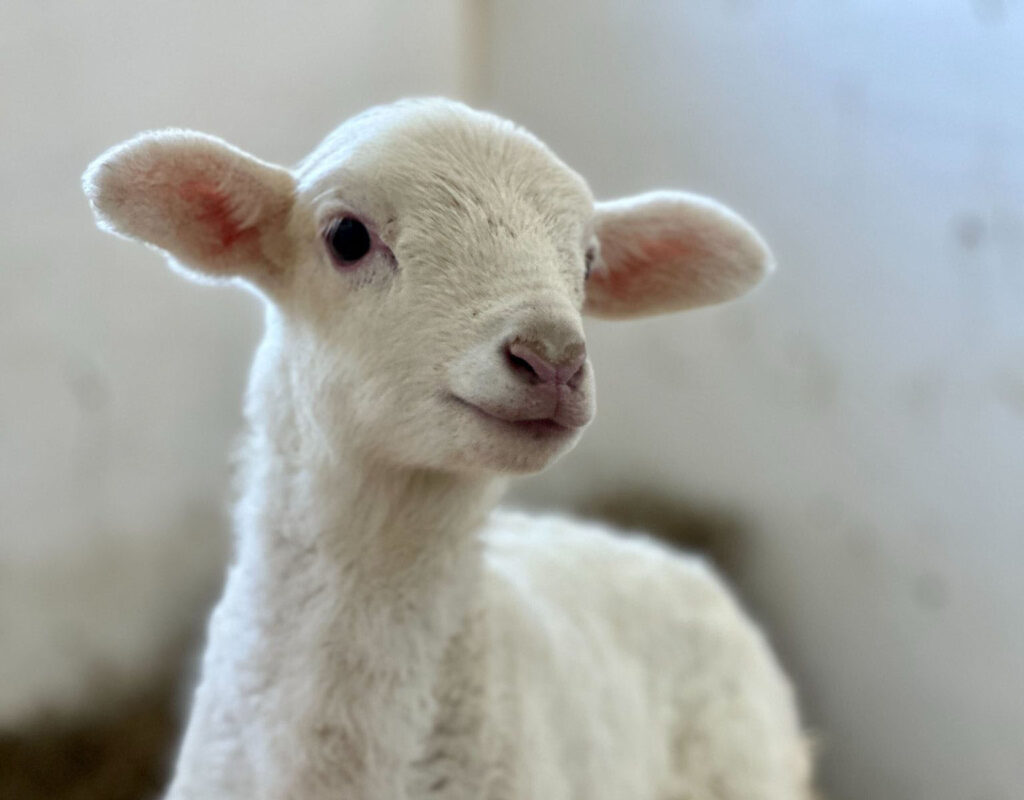
Denver, this is where we come in.
By voting yes on Measure 309 to ban slaughterhouses this November, Denver residents have a chance to close down Superior Farms lamb slaughterhouse, where over 1,000 baby sheep have their lives taken by the meat industry every day. Not a Denver resident? Pro-Animal Future is relying on donations from supporters everywhere to pass this important ordinance. With your help, we can get one step closer to a world where their suffering is no longer hidden, where their families are no longer torn apart, and where their incredible capacity for love and forgiveness is honored and celebrated.

